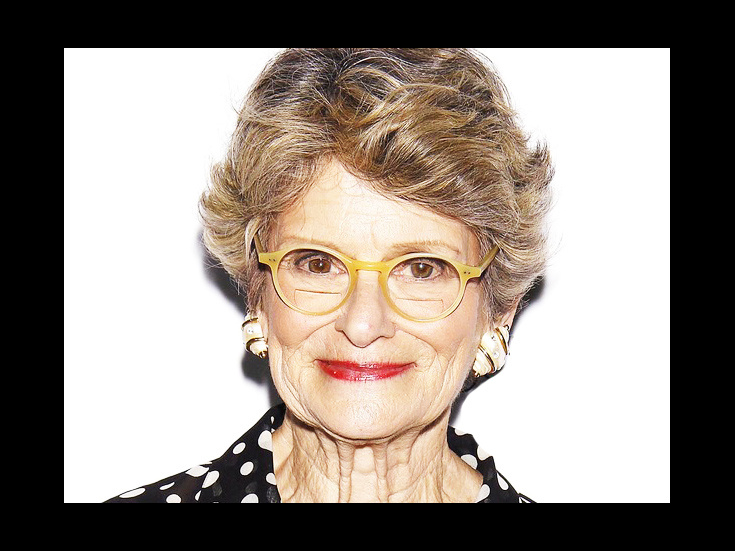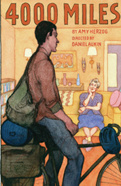4000 Miles Star Mary Louise Wilson on Grey Gardens, Gypsy and the Role That Changed Her Career
 Mary Louise Wilson
“One of the great thing about being an actor is that you have several lives,” says Mary Louise Wilson—and she should know. Almost 50 years after her Broadway debut in the flop musical Hot Spot, Wilson is in her prime, winning raves for playing feisty grandmother Vera Joseph in Amy Herzog’s 4000 Miles at Lincoln Center Theater. This New Orleans native has specialized in characters who are as smart and plain-spoken as she is, notably a Tony-winning performance as Edith Bouvier Beale (“Big Edie”) in Grey Gardens. Wilson recently chatted with Broadway.com about the childhood stunt that inspired her career, her brilliant performance as fashion editor Diana Vreeland in Full Gallop (a show she co-wrote) and more.
Mary Louise Wilson
“One of the great thing about being an actor is that you have several lives,” says Mary Louise Wilson—and she should know. Almost 50 years after her Broadway debut in the flop musical Hot Spot, Wilson is in her prime, winning raves for playing feisty grandmother Vera Joseph in Amy Herzog’s 4000 Miles at Lincoln Center Theater. This New Orleans native has specialized in characters who are as smart and plain-spoken as she is, notably a Tony-winning performance as Edith Bouvier Beale (“Big Edie”) in Grey Gardens. Wilson recently chatted with Broadway.com about the childhood stunt that inspired her career, her brilliant performance as fashion editor Diana Vreeland in Full Gallop (a show she co-wrote) and more.
 Role That Was the Most Emotionally Fulfilling
Role That Was the Most Emotionally Fulfilling
“4000 Miles is such a wonderful, beautifully written play. Old age is often depicted as a cliche, or a joke that happens to other people. I like this role so much because Vera is a complicated character who just happens to be old. She has lived a life, and she’s still fully engaged in life. I can appreciate that because I’m no chicken myself. On another level, a great plus is that I don’t have to put on makeup or fix my hair—I can walk off the street and onto the stage, and if I forget a line, people think it’s part of the show. My fellow cast members Gabriel Ebert, Zoe Winters and Greta Lee are wonderful young actors who give me a lot of hope about the future of the theater.”
 Role That Transformed My Career
Role That Transformed My Career
“The role of my life was Diana Vreeland in Full Gallop [1995, Obie Award], a play I wrote with Mark Hampton. Paul Huntley made a wig that transformed me when I put it on. I’ve always said that the wig knew the lines! I’m still in love with this woman. She had glamour and hilarity, and those are qualities I’ve always wanted myself. Growing up in New Orleans, I was fascinated by the chic women who came to play bridge with my mother in their little hats and their scarlet lips and nails and their husky voices. A lot of people thought of [Vreeland] as silly, but she was very disciplined and wildly imaginative. That play changed my career completely. I had been going up for bag ladies, and bag ladies don’t get good roles. People still come up to me 15 years later and tell me that they saw the show four or five times.”
 Role That Made Me Feel Cherished
Role That Made Me Feel Cherished
“I loved everybody in the creative team of Grey Gardens [2006; Best Featured Actress Tony Award]. Scott Frankel, the composer, asked for Christine Ebersole [to play Little Edie Beale], and he asked for me [to play Big Edie]. That just never happens. The fact that he knew I was right for the role when I didn’t know myself is mind-boggling. I didn’t think anybody could make a musical out of that film. It seemed bleak and depressing to me, but I was so wrong. I mean, when somebody writes a song for you called ‘Jerry Likes My Corn,’ you can’t beat that! The kind of life these women lived was not unknown to me. There were people like that in New Orleans, who have no money but great lineage and lived in disarray in their mansions.”
 Role That Felt Most Comfortable
Role That Felt Most Comfortable
“I love dark comedy—Joe Orton and Pinter and John Guare—and one of my all-time favorite roles was Henny, the mother in John Guare’s Bosoms and Neglect at the Signature Theatre [1998]. She was fierce. She’s blind, her uterus has fallen out, she’s dying of cancer, and for the entire second act she’s in her hospital bed having a huge fight with her son. The best direction I got was from John, who said to me, ‘You know, you’re not in bed.’ I can’t explain, but I got it. Henny was a role I felt I was born to play, and it broke my heart that we had such a short run.”
 Role That Challenged Me
Role That Challenged Me
“In Gypsy [1974, as Tessie Tura], I had a curly wig and a scanty costume; it was the first time my figure was obliged to audition, and I was very proud to get my legs out there for once! [Tessie] is the ballerina who ‘does it with finesse.’ For a split second, I was up on pointe in my high heels. During rehearsals, Arthur Laurents kept after me and said, ‘We’re not going to have any of this Mary Louise Wilson business.’ I didn’t know what the hell he was talking about. He demonstrated what he wanted by mincing around and waving his wrists, and I finally got it: He wanted Tessie to be this extremely refined lady who looked down on everybody else. It was a stretch for me, and that’s what ended up being so much fun—especially a line like ‘I don’t do no scenes. Now go scee-rew.’”
 Role That Was the Easiest Ever
Role That Was the Easiest Ever
“When I was 13, I took on all the characters in Arsenic and Old Lace and got up on stage at a PTA meeting and acted it out. I don’t know who put me up to it: I came out of the womb knowing that play and The Women and a few others. In those days, I could have memorized the Gettysburg Address in 15 minutes, so I just went into my closet and learned the whole show, with a different voice for each character. I was always being called out of class for being loud, then this happened and I was suddenly getting approval from adults, who kept carting me around to other meetings to perform. That’s when I realized, ‘This is where I belong.’”

